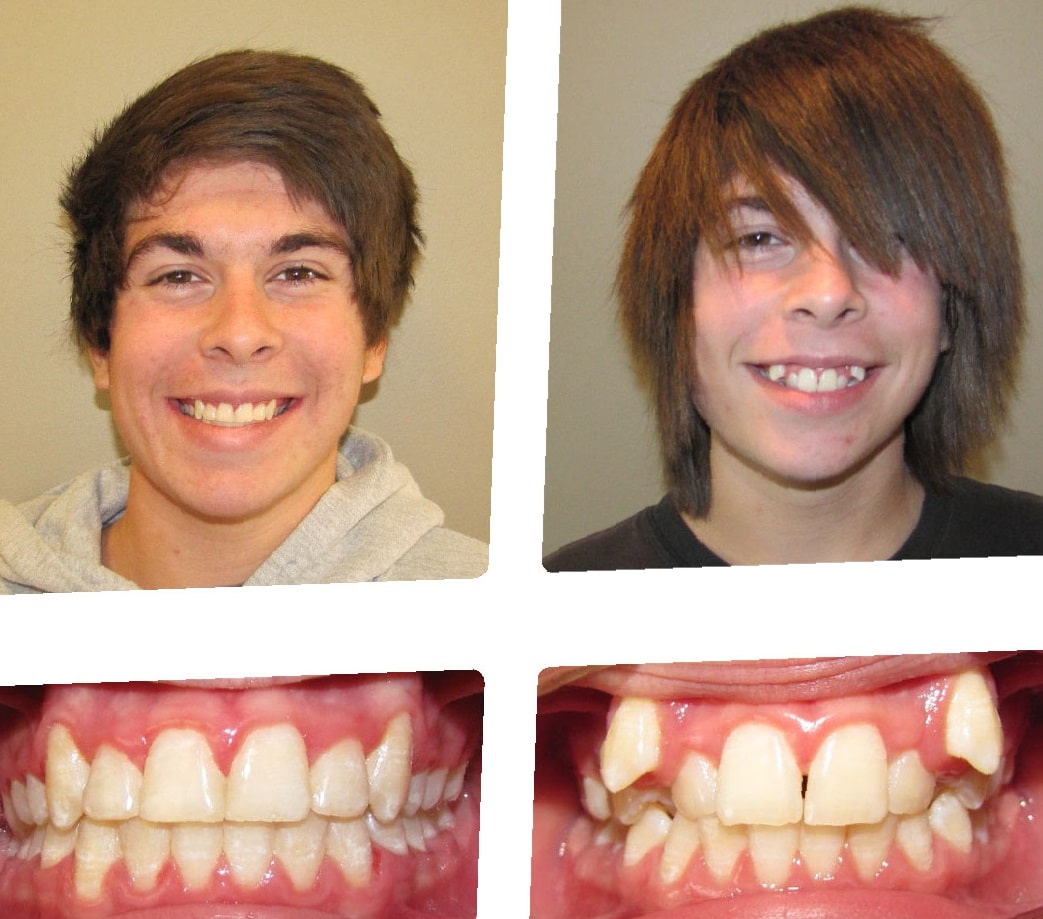Dentures are a common solution to restore missing teeth and enhance oral functionality for many individuals. In this comprehensive blog post, we will delve into the different aspects of dentures, starting with understanding the need for dentures and exploring the various types available. We will then discuss the consultation and evaluation process, as well as the crucial pre-treatment steps necessary before getting dentures. Furthermore, we will guide you through the detailed denture fitting process, along with the challenges and tips to adapt to life with dentures. Maintaining oral hygiene with dentures, potential side effects, and their management will be thoroughly addressed. Finally, we will highlight the benefits of dentures, including improved function and confidence, and shed light on long-term care and necessary adjustments. Get ready to embark on a journey to understand everything you need to know about dentures.
Understanding The Need For Dentures
As we age, our teeth can become weak and prone to decay, resulting in tooth loss. Missing teeth not only affect our ability to chew and speak properly but also impact our self-confidence and overall quality of life. In such cases, dentures can be a viable solution to restore the appearance and functionality of our teeth. Dentures are artificial replacements for missing teeth and the surrounding tissues. They are custom-made to fit comfortably in the mouth and can be fabricated as complete dentures or partial dentures, depending on the number of missing teeth.
There are several reasons why individuals may require dentures. One common cause is poor oral hygiene, which can lead to dental diseases such as gum disease and tooth decay. If left untreated, these conditions can progress and result in tooth loss. Additionally, accidents or injuries that cause tooth damage or loss may necessitate the use of dentures. Certain medical conditions such as diabetes or osteoporosis can also affect the health of our teeth, making dentures a suitable option for restoring oral functionality. Moreover, genetic factors can play a role in tooth loss, and dentures can help individuals with a family history of missing teeth.

Ultimately, the need for dentures goes beyond just restoring a full set of teeth. Dentures allow individuals to regain their ability to eat, speak, and smile confidently. They provide support to the facial muscles, preventing sagging and preserving the natural shape of the face. Additionally, dentures can help distribute the forces of chewing evenly, alleviating any discomfort or strain that may have been present due to missing teeth. With dentures, individuals can enjoy an improved quality of life and enhanced self-esteem.
Different Types Of Dentures
Dentures are a common and effective teeth replacement option for individuals who have lost their natural teeth due to various reasons. They not only restore the appearance of a smile but also improve overall oral health and function. When considering dentures, it is important to understand the different types available to choose the most suitable option based on individual needs and preferences.
1. Complete Dentures:
Complete dentures are used when all of the natural teeth are missing. These dentures are made up of a gum-colored acrylic base that supports a full set of artificial teeth. They are placed over the gums and held in place with the help of suction or dental adhesive.
2. Partial Dentures:
Partial dentures are utilized when some natural teeth are still intact. They consist of replacement teeth attached to a metal or acrylic framework. The framework is designed to fit around the remaining teeth, and it may have clasps or attachments to hold the denture securely in place.
3. Implant-Supported Dentures:
Implant-supported dentures are a more stable and secure type of denture. These dentures are anchored to dental implants that are surgically placed in the jawbone. The dental implants provide a sturdy foundation for the dentures, preventing slippage or movement while speaking or eating.
| Type of Denture | Description |
|---|---|
| Complete Dentures | Used when all natural teeth are missing. Consist of a gum-colored acrylic base and a full set of artificial teeth |
| Partial Dentures | Utilized when some natural teeth are still intact. Replacement teeth are attached to a metal or acrylic framework |
| Implant-Supported Dentures | More stable and secure dentures anchored to dental implants surgically placed in the jawbone |
When choosing the right type of denture, it is essential to consult with a dentist who will assess the oral condition and recommend the most suitable option. Factors such as the number of missing teeth, bone density, budget, and individual preferences play a role in determining the appropriate denture type.

Proper denture care and maintenance contribute to their longevity and functionality. Regular cleaning and removal of dentures at night, as well as routine dental check-ups, are crucial for ensuring oral health. If any issues or discomfort arise while wearing dentures, it is important to consult a dentist for adjustments or potential refinements.
In conclusion, dentures offer a reliable solution for individuals with missing teeth, providing both aesthetic benefits and improved oral function. Whether opting for complete dentures, partial dentures, or implant-supported dentures, consulting with a dentist is essential to determine the most appropriate type based on individual needs and circumstances.
Consultation And Evaluation Process
In the process of getting dentures, a consultation and evaluation are essential steps to ensure the best possible outcome for patients. This initial stage allows the dentist to assess the patient’s specific needs and provide them with the information necessary to make informed decisions about their dental health.
The Consultation:
During the consultation, the dentist will thoroughly examine the patient’s oral health and discuss any concerns or desires they may have regarding dentures. This is an opportunity for the patient to express their expectations and for the dentist to explain the different types of dentures available. It is crucial for the dentist to listen attentively to the patient’s needs and address any doubts or questions they may have.
Evaluation Process:
As part of the evaluation process, the dentist will assess the patient’s oral health by examining their gums, teeth, and any existing dental work. X-rays and impressions of the teeth and jaws may also be taken to provide a deeper understanding of the patient’s dental situation. These evaluations help determine the suitability of dentures for the patient and aid in creating a personalized treatment plan.
Discussion and Treatment Plan:
Once the examination and evaluations are complete, the dentist will discuss the treatment plan with the patient. This includes the type of dentures recommended, the materials that will be used, and the anticipated timeline for the procedure. The dentist will also provide an estimate of the cost involved and address any possible alternatives or considerations to take into account.

To ensure the success of the consultation and evaluation process, it is crucial for patients to come prepared with a list of questions and concerns. Open communication between the patient and dentist is vital throughout this stage, as it ensures that both parties are on the same page and have a clear understanding of the next steps.
List of Considerations during the Consultation and Evaluation Process:
1. Oral Health: The dentist will assess the overall oral health of the patient, checking for any signs of gum disease, decay, or infections. It is important to address any existing dental issues before proceeding with denture treatment.
2. Denture Type: The dentist will explain the different types of dentures available, including full dentures, partial dentures, and implant-supported dentures. They will consider factors such as aesthetics, functionality, and budget when recommending the most suitable option for the patient.
3. Denture Materials: The choice of denture materials can vary, ranging from acrylic to porcelain. The dentist will discuss the pros and cons of each option, considering factors such as durability, comfort, and aesthetics.
4. Timeline and Procedure: The dentist will outline the anticipated timeline for the denture procedure, including the number of appointments required and the duration of each visit. This allows the patient to plan accordingly and have realistic expectations regarding the treatment process.
5. Cost and Insurance Coverage: The dentist will provide an estimate of the cost involved in the denture treatment, including any additional procedures or adjustments that may be required. They will also discuss insurance coverage and potential financing options to ensure that the patient is well-informed.
Conclusion:
The consultation and evaluation process plays a significant role in the successful outcome of denture treatment. It allows for a comprehensive understanding of the patient’s needs and desires, and enables the dentist to create a personalized treatment plan. By ensuring open communication, thorough evaluations, and shared decision-making, patients can embark on their denture journey with confidence and clarity.
| Table | of | Contents | |
|---|---|---|---|
| 1. | The Consultation | 2. | Evaluation Process |
| 3. | Discussion and Treatment Plan | 4. | List of Considerations |
| 5. | Conclusion |
Preparing For Dentures: Pre-Treatment Steps
When it comes to preparing for dentures, there are several important pre-treatment steps to consider. Taking these steps will help ensure a smoother process and more successful outcome for the denture fitting. From dental consultations to gathering necessary information, here are the key pre-treatment steps to know.
1. Dental Consultation: The first step in preparing for dentures is to schedule a consultation with a dentist. During this initial appointment, the dentist will examine the oral health and discuss the specific needs and expectations of the patient. They will also address any concerns or questions regarding the denture process.
2. Dental Impressions: Once the consultation is done and dentures have been determined as the appropriate treatment option, the dentist will take dental impressions. These impressions are essential for creating custom dentures that fit perfectly in the patient’s mouth. The dental impressions will capture the shape and size of the gums and remaining teeth, if any.

3. Preparing the Mouth: Before receiving dentures, it is vital to ensure that the mouth is in good health. This may involve treating any existing dental issues such as cavities, gum disease, or infections. Additionally, any necessary extractions may be performed during this stage to create a suitable foundation for the dentures.
| Pre-Treatment Steps for Dentures: |
|---|
|
|
|
These pre-treatment steps are crucial for ensuring the success and comfort of dentures. By following these steps, individuals can feel confident in their decision to pursue dentures as a solution for missing teeth. Remember to consult with a dentist for personalized advice and guidance throughout the process.
The Denture Fitting Process Explained
When it comes to getting dentures, the fitting process is an important step to ensure that your dentures fit comfortably and function properly. Without a proper fit, dentures can be uncomfortable, cause irritation, and even affect your ability to speak and eat. In this blog post, we will explain the denture fitting process and highlight the key steps involved.
The first step in the denture fitting process is an initial consultation with your dentist. During this consultation, your dentist will examine your mouth and discuss your specific needs and expectations. They will take dental impressions and measurements to ensure that your dentures are custom-made to fit your mouth perfectly.
Once the initial impressions are taken, they are sent to a dental laboratory where skilled technicians will create a wax model of your dentures. This model will be used to create a final set of dentures that closely resemble your natural teeth and gums. The wax model allows you and your dentist to preview the final look and make any necessary adjustments before the dentures are finalized.

After the wax model is approved, the final dentures will be made using a durable and lifelike material. During the fitting appointment, your dentist will make sure that the dentures fit properly and make any necessary adjustments. They will also provide you with instructions on how to care for and clean your dentures to ensure their longevity.
Adapting To Life With Dentures: Challenges And Tips
Adapting to life with dentures can be both an exciting and challenging experience. While dentures offer a solution for missing teeth and restore your ability to eat and speak properly, they also require an adjustment period. During this time, you may face several challenges that can affect your daily life. However, with the right tips and guidance, you can adapt to wearing dentures and regain your confidence and comfort.
One of the common challenges faced by denture wearers is difficulty in speaking. It is normal to experience speech changes initially, as your tongue and muscles will need to become accustomed to the new appliance in your mouth. To overcome this challenge, it is important to practice speaking slowly and clearly. Reading aloud or practicing conversations with close friends or family members can help you become more confident in your speech with dentures.
Eating can also be a challenge when you first start wearing dentures. It may take some time to adjust to the new way of chewing and biting. To make the process easier, it is recommended to start with soft foods and gradually introduce harder textures. Cutting food into smaller pieces and chewing evenly on both sides of your mouth can also aid in the adaptation process. Patience and persistence are key in overcoming these initial eating challenges.
- Additionally, dentures may sometimes cause discomfort and sore spots in your mouth. This is a common issue, especially during the initial days of wearing them. To alleviate this discomfort, it is important to ensure that your dentures fit properly. Regular visits to your dentist for adjustments or relining of the dentures can help prevent sore spots. Furthermore, practicing good oral hygiene by cleaning your dentures and gums regularly can also contribute to a more comfortable fit.
| Challenge | Tips |
|---|---|
| Speech difficulties | – Practice speaking slowly and clearly- Read aloud or have conversations with close friends or family |
| Eating challenges | – Start with soft foods- Gradually introduce harder textures- Cut food into smaller pieces and chew evenly on both sides |
| Discomfort and sore spots | – Ensure proper fit of dentures through regular visits to the dentist- Practice good oral hygiene |
Another important aspect of adapting to life with dentures is maintaining proper oral hygiene. It is crucial to clean your dentures daily to remove food particles and prevent the buildup of plaque and bacteria. Brushing your natural teeth, if any, and tongue is equally important to maintain good oral health. Your dentist can guide you on the right techniques and products to use for cleaning your dentures.

Lastly, it is natural to feel a sense of self-consciousness or discomfort initially when wearing dentures. However, with time and practice, these feelings can subside. One helpful tip is to maintain a positive mindset and focus on the benefits of having dentures, such as improved appearance, ability to eat, and restored confidence in your smile. Support from friends, family, or joining support groups for denture wearers can also provide valuable encouragement and advice.
In conclusion, adapting to life with dentures may present some challenges, but with patience, practice, and the right guidance, you can overcome them. By following the provided tips, you can improve your speech, eating, and comfort with dentures. Additionally, maintaining good oral hygiene and staying positive will contribute to a smoother transition and help you fully enjoy the benefits of wearing dentures.
Maintaining Oral Hygiene With Dentures
When it comes to maintaining oral hygiene with dentures, there are a few important steps to keep in mind. Dentures, whether full or partial, require regular care to ensure their longevity and your overall oral health. Proper hygiene practices can prevent issues such as bad breath, gum infections, and plaque buildup. In this blog post, we will discuss some essential tips and techniques for maintaining oral hygiene with dentures.
1. Cleaning your dentures: The first step in maintaining oral hygiene with dentures is to clean them regularly. It is recommended to clean your dentures at least twice a day. Start by removing any food particles or debris that may have accumulated on the dentures. Use a denture brush or a soft-bristled toothbrush with a non-abrasive denture cleaner to clean the dentures thoroughly. Avoid using regular toothpaste or abrasive cleaners as they can damage the dentures.
2. Cleaning your mouth: In addition to cleaning your dentures, it is equally important to clean your mouth and gum tissues. Using a soft-bristled toothbrush or a gauze pad, gently brush your gums, tongue, and the roof of your mouth. This helps to remove any bacteria or plaque that can accumulate and cause issues such as bad breath or gum infections. Rinse your mouth with lukewarm water or an antiseptic mouthwash to further reduce bacteria and maintain a clean oral environment.
3. Soaking your dentures: Soaking your dentures overnight is another essential step in maintaining oral hygiene. This helps to keep the dentures moist, preventing them from drying out or warping. Denture soaking solutions or plain water can be used for this purpose. Make sure to follow the manufacturer’s instructions when using denture soaking solutions. Also, remember to rinse the dentures thoroughly before wearing them again in the morning.
- Overall, maintaining oral hygiene with dentures requires regular cleaning of both the dentures and your mouth. By following the proper cleaning techniques and routine, you can avoid common issues associated with denture use, such as gum infections and bad breath. Additionally, it is crucial to schedule regular check-ups with your dentist to ensure the fit and condition of your dentures. By practicing good oral hygiene habits, you can enjoy the benefits of dentures while having a healthy and clean smile.
| Benefits | Challenges | Preparation |
|---|---|---|
| Improved chewing and speaking ability | Initial discomfort and adjustment period | Consultation and evaluation process with a dentist |
| Enhanced facial appearance and confidence | Difficulty in eating certain foods | Pre-treatment steps like extractions, if required |
| Prevention of jaw bone loss | Potential sore spots | Understanding the need for dentures |
| Restoration of a natural smile | Changes in taste sensation | Different types of dentures |
Potential Side Effects And How To Manage Them
When it comes to getting dentures, it is important to be aware of the potential side effects that may arise during the adjustment period. While dentures can greatly improve your oral health and quality of life, it is not uncommon to experience some discomfort or inconvenience in the beginning. This article will explore some of the potential side effects of wearing dentures and provide tips on how to effectively manage them.
1. Gum soreness and irritation: One of the common side effects of wearing dentures is gum soreness and irritation. This usually occurs when your gums are not used to the pressure and friction exerted by the dentures. To manage this side effect, it is recommended to follow proper denture care guidelines provided by your dentist. Additionally, rinsing your mouth with warm salt water can help alleviate gum soreness and promote healing.
2. Difficulty speaking and eating: Another potential side effect of dentures is difficulty speaking and eating. In the beginning, it may take some time for your tongue and mouth muscles to adapt to the new dentures. To manage this side effect, it is important to practice speaking and eating slowly, taking small bites and using both sides of your mouth evenly. Over time, your muscles will strengthen, and you will regain your normal speech and eating abilities.
| 3. Excessive saliva production: | 4. Changes in taste and smell: |
|---|---|
| Excessive saliva production is another common side effect of wearing dentures. This can happen as your mouth tries to adjust to the presence of the new dental appliance. To manage this side effect, it is recommended to swallow frequently and practice proper denture placement and adhesion. | Some individuals may experience changes in taste and smell when wearing dentures. This can be attributed to the denture material or the reduced ability of the taste buds to come into contact with food. Rinsing your mouth with an antiseptic mouthwash and practicing good oral hygiene can help manage this side effect. |
5. Mouth infections: Poor oral hygiene or ill-fitting dentures can increase the risk of mouth infections such as oral thrush or stomatitis. It is important to maintain good oral hygiene by brushing your dentures and gums regularly, using a non-abrasive denture cleaner, and regularly visiting your dentist for check-ups and adjustments. If you suspect a mouth infection, seek dental attention immediately.
6. Psychological and emotional challenges: Adjusting to life with dentures can also bring about psychological and emotional challenges. Some individuals may feel self-conscious or have difficulty accepting their new appearance. Seeking support from loved ones, joining support groups, and practicing self-care can help manage these challenges and boost self-confidence.
In conclusion, while potential side effects can arise when wearing dentures, it is important to remember that they are temporary and manageable. By following proper denture care guidelines, maintaining good oral hygiene, and seeking support when needed, you can effectively manage these side effects and enjoy the benefits of wearing dentures in the long run.
Benefits Of Dentures: Improved Function And Confidence
Dentures are a common dental solution for individuals who have lost their natural teeth due to various reasons such as age, disease, or accidents. They are custom-made prosthetic devices that are designed to replace missing teeth and provide support for the surrounding oral structures. While there are several reasons why people opt for dentures, one of the significant benefits is the improved function and confidence they can bring.
First and foremost, dentures greatly enhance the functional aspect of your mouth. With missing teeth, normal activities like chewing and speaking can become quite challenging. Dentures help restore your ability to eat a wide variety of foods and enjoy a balanced diet. Whether it’s biting into an apple or savoring your favorite steak, dentures enable you to regain the pleasure of eating without restrictions. Moreover, dentures also improve your speech by filling in the gaps caused by missing teeth, allowing you to articulate words more clearly and confidently.
Furthermore, dentures provide a significant boost to your self-confidence. Losing teeth can have a negative impact on one’s appearance, leading to self-consciousness and embarrassment. Dentures effectively fill in the gaps left by missing teeth, giving you a natural-looking smile and facial structure. This restoration of your smile can help improve your self-esteem and overall confidence, allowing you to engage more freely in social interactions without feeling self-conscious about your missing teeth.
- In summary, the benefits of dentures go beyond just restoring the function of your mouth; they can significantly improve your quality of life. With dentures, you can enjoy a wide range of foods, speak clearly, and regain the confidence to smile again. If you are considering dentures, it is essential to consult with a dental professional who can assess your specific needs and guide you through the fitting process.
| Pros of Dentures | Cons of Dentures |
|---|---|
| Improved ability to eat and speak | May take time to adjust and get used to |
| Natural-looking smile and facial structure | Regular cleaning and maintenance required |
| Increased self-confidence | Occasional discomfort or soreness |
| Restored oral function | May need adjustments or relining over time |
Long-Term Care And Adjustments For Dentures
When it comes to long-term care and adjustments for dentures, it is important to understand that dentures require regular maintenance to ensure their proper functioning and longevity. Proper care and adjustment of dentures are essential for preserving oral health and ensuring optimal comfort. Whether you are new to wearing dentures or have been wearing them for years, taking care of your dentures and seeking professional assistance for adjustments are crucial steps in maintaining a healthy and functional smile.
One of the most important aspects of long-term denture care is maintaining good oral hygiene. Just like natural teeth, dentures require regular cleaning to prevent the buildup of plaque and bacteria. You should brush your dentures daily using a soft-bristled toothbrush and a non-abrasive denture cleanser. Avoid using regular toothpaste or harsh cleaners, as they can damage the denture material. Additionally, remove your dentures at night and soak them in a denture-cleaning solution to keep them clean and fresh.
In addition to regular cleaning, dentures may require adjustments over time. As the jawbone and gum tissue underneath the dentures change, your dentures may become loose or uncomfortable. It is important to visit your dentist regularly for check-ups and adjustments to ensure a proper fit. During these appointments, your dentist will examine your dentures and make necessary adjustments to maintain their fit and function. This may involve adding or removing material to the dentures or adjusting their shape to better match the current state of your oral tissues.
- It is worth noting that adjustments to dentures should never be attempted at home. DIY solutions such as applying adhesives or modifying the dentures yourself can cause more harm than good. Only a dental professional has the expertise and knowledge to make accurate adjustments that will not compromise the integrity of your dentures or oral health.
| Potential Side Effects of Ill-Fitting Dentures: |
|---|
| 1. Sore gums and mouth irritation |
| 2. Difficulty speaking or eating |
| 3. Slippage or movement of dentures while talking or eating |
| 4. Poor chewing and digestion of food |
| 5. TMJ (Temporomandibular Joint) disorders |
| 6. Facial muscle strain and soreness |
If you experience any of these side effects, it is crucial to schedule an appointment with your dentist for adjustment. Ignoring ill-fitting dentures can lead to further oral health issues and discomfort.
Lastly, when it comes to long-term care for your dentures, it is important to handle them with care. Avoid dropping your dentures or exposing them to extreme temperature changes, as this can lead to breakage or warping. When you are not wearing your dentures, store them in a denture soaking solution or clean water to prevent them from drying out. Additionally, avoid using toothpicks or hard brushes on your dentures, as they can damage the material.

In conclusion, long-term care and regular adjustments are crucial for maintaining the functionality and quality of your dentures. By practicing good oral hygiene, seeking professional adjustments, and handling your dentures with care, you can ensure a comfortable and long-lasting denture experience. Remember, always consult your dentist for any concerns or issues related to your dentures to receive proper guidance and oral care.
Frequently Asked Questions
Question 1: How do dentures help improve oral function and confidence?
Dentures restore missing teeth, allowing you to chew food properly and speak more clearly. They also enhance your smile, which can boost your self-esteem and confidence.
Question 2: What are the different types of dentures available?
There are several types of dentures, including full dentures, partial dentures, implant-supported dentures, and immediate dentures. Your dentist can help determine which type is best for you based on your specific needs.
Question 3: How does the consultation and evaluation process for dentures work?
The consultation and evaluation process typically involve a thorough examination of your mouth, jawbone, and existing teeth (if any) to determine the best treatment plan for dentures. Your dentist will take impressions and measurements of your mouth to create custom-fitted dentures.
Question 4: What steps should be taken before getting dentures?
Before getting dentures, it is important to have any remaining damaged teeth extracted, if necessary. Your dentist may also recommend treatments such as gum disease treatment or bone grafting to ensure a solid foundation for your dentures.
Question 5: How does the denture fitting process work?
The denture fitting process involves trying on your custom-made dentures and making any necessary adjustments to ensure a comfortable fit. Your dentist will provide instructions on how to properly insert and remove your dentures.
Question 6: What challenges can arise while adapting to life with dentures?
Common challenges when adapting to dentures include initial discomfort, difficulty speaking or eating, and increased salivation. However, with time and practice, most people adjust to wearing dentures and overcome these challenges.
Question 7: How can potential side effects of wearing dentures be managed?
Potential side effects of wearing dentures, such as sore gums or mouth irritation, can be managed by maintaining good oral hygiene, using dental adhesive if necessary, and visiting your dentist for regular check-ups and adjustments.

Comments are closed.